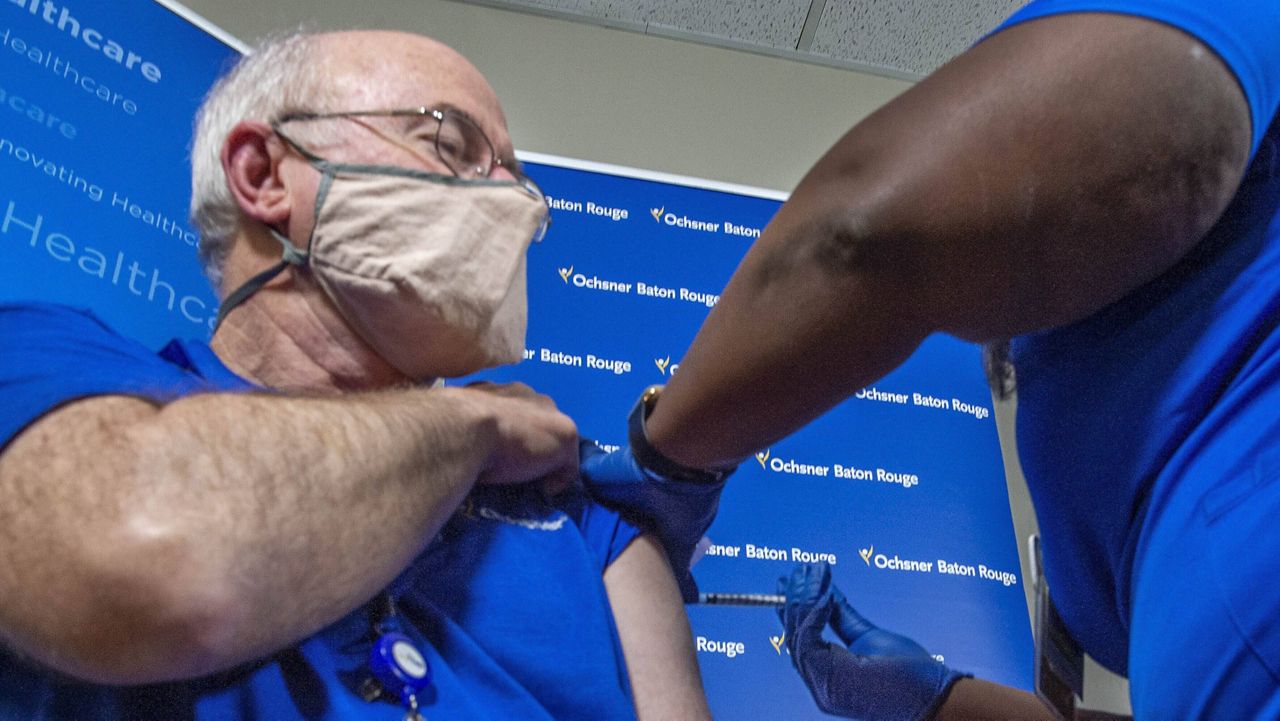The Trump administration is asking states to speed delivery of COVID-19 vaccines to people 65 and older and to others at high risk by no longer holding back the second dose of the two-dose shots, officials said Tuesday.
States that vaccinate more people may also be rewarded with additional doses under the new plan.
What You Need To Know
- The Trump administration is asking states to speed delivery of COVID-19 vaccines to people 65 and older and to others at high risk by no longer holding back the second dose of the two-dose shots
- Health and Human Services Secretary Alex Azar said that “the administration in the states has been too narrowly focused”
- Azar said it's also time to expand the number of places where people can be vaccinated by adding community health centers and additional drug stores
Health and Human Services Secretary Alex Azar said that “the administration in the states has been too narrowly focused.”
As a result, he said, the Trump administration is now asking states to vaccinate people age 65 and over and those under 65 with underlying health conditions that put them at high risk. He said the vaccine production is such that the second dose of the two-shot vaccine can be released without jeopardizing immunization for those who got the first shot.
“We now believe that our manufacturing is predictable enough that we can ensure second doses are available for people from ongoing production," Azar told ABC's "Good Morning America” earlier Tuesday. "So everything is now available to our states and our health care providers.”
In a briefing Tuesday afternoon, Azar also said that the administration would reward states who administer their vaccine doses quickly by allocating more shots to those states. He said localities have two weeks to tweak their plans and speed up their vaccinations in the meantime.
But with President-elect Joe Biden set to be sworn in next Wednesday, it's unclear whether the new allocations would stick, since officials such as Azar and CDC Director Redfield will leave the administration next week. Biden has promised to enact his own vaccination plan.
On Tuesday, officials said they also plan to expand the number of places where people can be vaccinated by adding community health centers and additional drug stores.
General Gustave Perna, who oversees vaccine distribution, said they are asking states to make vaccines accessible in retail pharmacies. Perna said that includes 40,000 pharmacy locations that have signed on to be part of the distribution networks, and he said he hopes to increase the number of sites in the coming months.
"It allows us to distribute it throughout the country," Perna said. "It allows us to give a place where the American people are comfortable of going and receiving the shot."
Azar said the federal government “will deploy teams to support states doing mass vaccination efforts if they wish to do so.”
The HHS Secretary also responded to questions about why states were slow in giving the shots. He said the plans had been too narrow so far, and he called the rollout a "scale-up," noting that the country was only four weeks into the process.
Azar had previously expressed confidence that the U.S. would vaccinate 20 million people in December and another 30 million in January. According to a CDC tracker, just under nine million Americans have gotten the shot.
President-elect Joe Biden is expected to give a speech Thursday outlining his plan to speed vaccines to more people in the first part of his administration. His transition team has vowed to release as many vaccine doses as possible, rather than continuing the Trump administration policy of holding back millions of doses to ensure there would be enough supply to allow those getting the first shot to get a second one.
The Pfizer-BioNTech vaccine requires a second shot about three weeks after the first vaccination. Another vaccine, this one produced by Moderna, requires a second shot about four weeks afterward. Azar said Tuesday that releasing the held-back second doses would not impact the recommended shot timeline.
One-shot vaccines are still undergoing testing, but Dr. Moncef Slaoui said Tuesday that he expects Johnson & Johnson to be ready to submit its candidate to the FDA by the end of the month.
